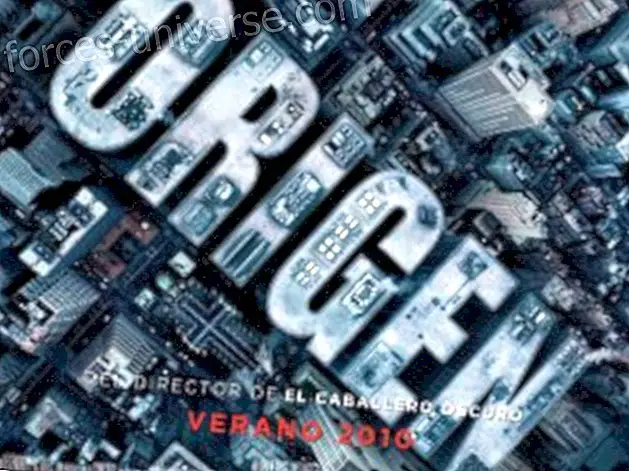
Living pending issues that should be concluded, but that we dare not close, has an unnecessary consumption of energy and present, because it stagnates us and prevents us from correctly developing the right path of life.
In this world, and in this life, everything has a beginning and everything has an end.
So you have to accept it.
Relationships, and events, always have a cycle and one should not try to take them beyond what is their logical purpose.
Although we would like it to be so, things must be left to go, not interfere in their process, not cling to them, and know how to give them freedom so that they do not bind us or remain attached to us.
The process from the intuition of the convenience of saying goodbye until it is put into practice is very unequal in time, depending on each person and depending on the strength of the bond that has kept them related.
We do not always realize it, but we are clinging to our past - because that confirms that we have existed until now - and leaving the past, however unpleasant it may be, is like giving up on our part.
That's why it costs so much sometimes.
To get rid of a situation, or separate from a person, it is very convenient that the relationship between the two has reached its end, to the point where it is no longer contributing anything positive - since it is a condition that all relationships contribute something - and May your only contribution be negative and unnecessary.
If it is only negative, it will apparently be, because it keeps telling us that there is something we have to solve.
If it is unnecessary at the same time, because we have already learned everything we had to learn from it, it should be canceled as soon as possible.
A good test to know if we are fully in the present, or if we are still hooked on something that we have to say goodbye, is to see if we are more in the past than in the here and now.
In the past, both things that seem good to us and those that seem bad to us coexist, and we must say goodbye to both.
Do not forget them, but get them not to affect us negatively in the present.
What we call "good" is fine to continue, but not to try to resuscitate them continuously and install them in the present where they are no longer. Yes it is good to keep them latent and warm, but separated from us, to be able to recreate them or remember them when we deem it convenient, to let them leave later without trying to retain them.
That is how it should be.
Be careful not to want to make the present a repetition of that good past that is no longer there.
And with even more care not to enter into a comparison in which the present disappoints us because it seems to us that the past was better.
The danger of not doing so is twofold: if we like the past more, we will not find motivations to continue in the present, and, if we do not find interesting motivations to continue, the first part is confirmed and we conclude by affirming that the past is better.
I insist that one should not erase the good things, nor deny their existence.
The good things that have happened to us extend our smile, strengthen the confidence that life is beautiful, and make us realize and value our ability to enjoy, to be happy, to love ...
They are a treasure that we have to keep, and they are continuous suppliers of a very pleasant sensation that makes us value ourselves for what we have felt and enjoyed.
The things we understand and feel as "bad" should not leave a trace. They wanted to teach us something and, if we have learned it, we no longer need them.
Stagnate in the pain of those things that we have felt, or those that we have lost, drag us into the past and do not let us enjoy the present with the intensity it requires.
We have to be generous - with ourselves - and give ourselves permission to get rid of such a heavy and useless burden.
But to say goodbye, we have previously had to take the relationship or feeling to the end.
There is almost always an unfinished business, and you cannot close the page definitively if it is not fully liquidated.
Through therapy, relaxation induced and directed by a professional, or in the way that one considers possible or appropriate, one must face the issue, bring it all to light, express the feelings that were silenced, manifest what was not said, and, perhaps, even doing what was not done.
Some psychologists recommend writing a letter that expresses everything that is pending, or takes the person to a state of relaxation in which they can feel in the situation, or in front of the person, and conclude it.
It is a hard internal process, but very liberating.
If there is silenced love, resentment, anger, reproaches, hatreds, it is convenient to take them out and not leave them inside us sticking their daggers.
It is good that we dare to pronounce today what those times we did not say, and say the word love and its synonyms to those who are no longer there and deserve it, or throw them in the face how much they made us suffer, how much pain they caused us, or speak to them -Live voice- of the nostalgia they cause us.
Every situation that has already been concluded in time, has to be symbolically buried, and requires its duel, since it has died to the present.
This duel is to get in touch with the emptiness he has left, assess the importance of that or that which is no longer there, and endure the suffering and frustration it entails.
Once these three steps have been taken, it should no longer be extended. The pain must not be eternalized.
We can live, and much better, without dragging an infinite mourning, an inconsolable grief, a silent but hurtful remorse, or a continuous reproach for what was not done when it should have been done.
And this is a noble, brave and necessary task that must be undertaken.
It can be hard while it is done, but it must be done, although, generally, when it shows its gratification is once finished.
Life goes on, and with more intensity, when it has been said, by heart, goodbye.
Learn to say Goodbye, by Francisco de Sales
(Francisco de Sales, is the creator of the web www.buscandome.es, for people interested in Psychology, Spirituality, Improvable Life, Self-Knowledge and Personal Development)






